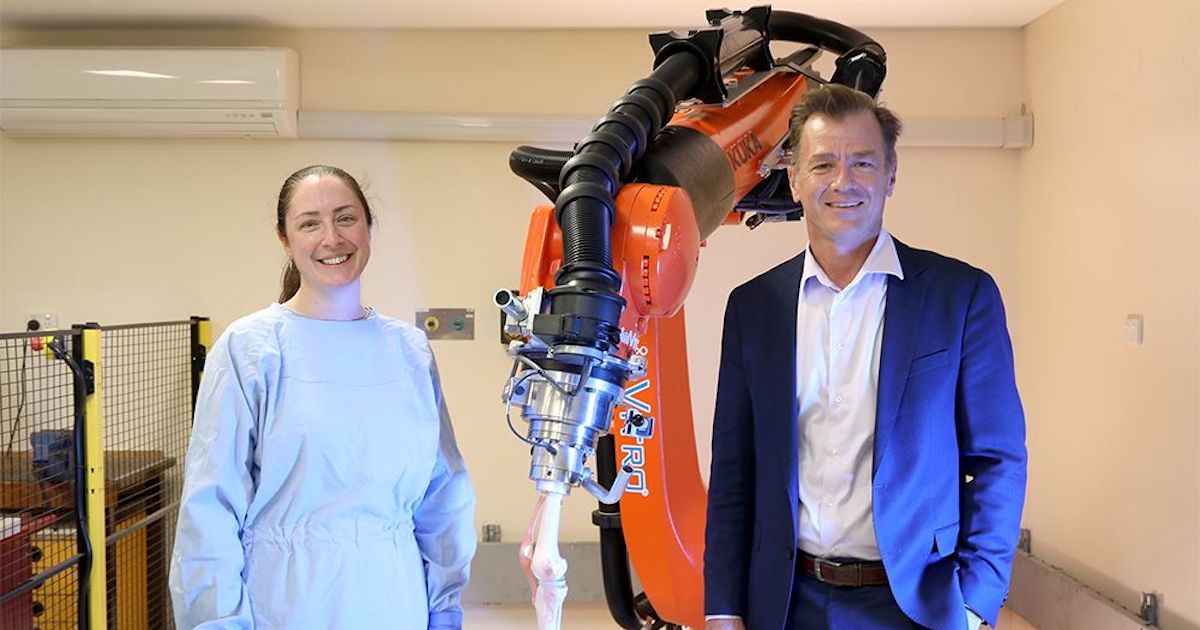
[ad_1]

A new robotic arm at the Kolling Institute, a joint venture between the Northern Sydney Local Health District and the University of Sydney, is seen to improve hip and knee replacements in Australia.
WHAT IT DOES
Called KOBRA (Kolling Orthopaedic Biomechanics Robotic Arm), the orthopaedic biomechanics robot is one of the only two robots in the country that is based on simVitro – a hardware neutral joint testing system that came out of the Cleveland Clinic’s Lerner Research Institute.
The robot simulates complex human movements on joints to provide researchers with a “clearer picture” of how joints will perform in various situations, explained Elizabeth Clarke, associate professor at the University of Sydney and the director of the Kolling Institute’s Murray Maxwell Biomechanics Laboratory.
It can test complex movements and activities that involve compression and twisting like hip flexing, squatting, walking and throwing.
KOBRA’s development was backed by the NSW Investment Boosting Business Innovation program and the Royal North Shore Hospital Staff Specialist Trust Fund.
WHY IT MATTERS
Based on a media release, KOBRA is expected to be used to test implants, particularly for hip and knee replacements, to gauge how the implants will work. It will also be used to help validate computer models that assist surgeons in the placement of implants. Additionally, the robot will be likely used to assist surgeons working to repair chronic shoulder instability.
Moreover, researchers are seeking to apply the information and data provided by KOBRA across disciplines, extending research capabilities and leading to new surgical techniques.
MARKET SNAPSHOT
Just last year, Smith+Nephew, a British medtech company, launched in Australia and New Zealand its handheld robotics solution for unicompartmental and total knee arthroplasties. The US FDA-approved CORI Surgical System is said to be ideal for ambulatory surgery centres and outpatient surgery.
ON THE RECORD
“It is a very exciting time for musculoskeletal research and surgery and it’s tremendously encouraging to see this world-leading technology coming to the Kolling Institute. It will assist researchers, engineers and surgeons, and ultimately lead to improved surgical techniques, better physical function and good long-term health outcomes for our community,” commented Bill Walter, professor of Orthopaedics and Traumatic Surgery at the University of Sydney and an orthopaedic surgeon at the Royal North Shore Hospital.
[ad_2]
Source link





No comment yet, add your voice below!